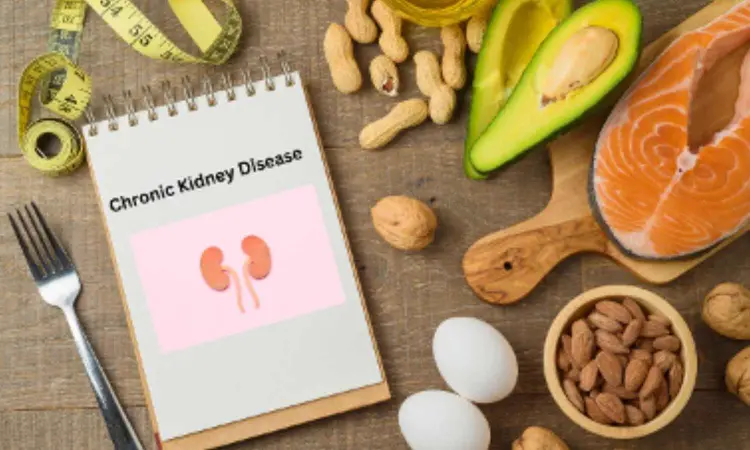- Home
- Medical news & Guidelines
- Anesthesiology
- Cardiology and CTVS
- Critical Care
- Dentistry
- Dermatology
- Diabetes and Endocrinology
- ENT
- Gastroenterology
- Medicine
- Nephrology
- Neurology
- Obstretics-Gynaecology
- Oncology
- Ophthalmology
- Orthopaedics
- Pediatrics-Neonatology
- Psychiatry
- Pulmonology
- Radiology
- Surgery
- Urology
- Laboratory Medicine
- Diet
- Nursing
- Paramedical
- Physiotherapy
- Health news
- Fact Check
- Bone Health Fact Check
- Brain Health Fact Check
- Cancer Related Fact Check
- Child Care Fact Check
- Dental and oral health fact check
- Diabetes and metabolic health fact check
- Diet and Nutrition Fact Check
- Eye and ENT Care Fact Check
- Fitness fact check
- Gut health fact check
- Heart health fact check
- Kidney health fact check
- Medical education fact check
- Men's health fact check
- Respiratory fact check
- Skin and hair care fact check
- Vaccine and Immunization fact check
- Women's health fact check
- AYUSH
- State News
- Andaman and Nicobar Islands
- Andhra Pradesh
- Arunachal Pradesh
- Assam
- Bihar
- Chandigarh
- Chattisgarh
- Dadra and Nagar Haveli
- Daman and Diu
- Delhi
- Goa
- Gujarat
- Haryana
- Himachal Pradesh
- Jammu & Kashmir
- Jharkhand
- Karnataka
- Kerala
- Ladakh
- Lakshadweep
- Madhya Pradesh
- Maharashtra
- Manipur
- Meghalaya
- Mizoram
- Nagaland
- Odisha
- Puducherry
- Punjab
- Rajasthan
- Sikkim
- Tamil Nadu
- Telangana
- Tripura
- Uttar Pradesh
- Uttrakhand
- West Bengal
- Medical Education
- Industry
Lowering sugar and carbohydrates reduces mortality risk in patients with CKD

China: For adults with CKD (chronic kidney disease), a diet lower in sugar and carbohydrates could increase life expectancy, says a study published in Renal Failure.
The researchers suggest, "dietary advice should be given according to the current diet structure (particularly the percentage of carb intake), and non-sugar/sugar carbohydrates should be considered when adjusting the carbohydrate intake in CKD patient."
Diet management is an effective way to slow the progression of chronic kidney disease. However, not many studies have determined the impact of carbohydrate intake on CKD patients. Qidong Ren, Department of Nephrology, Peking Union Medical College Hospital, Beijing, P.R. China, and colleagues investigated the associations between carbohydrate intake and all-cause mortality in U.S. adult CKD patients by conducting a prospective cohort study using data from the NHANES (National Health and Nutrition Examination Survey).
"Unlike many previous studies that only focused on single macronutrients and linear associations with outcomes, we determined the non-linear associations of macronutrients and their constituents," the authors wrote.
The iso-caloric replacement analysis and Multivariable Cox proportional hazard models determined the associations between the macronutrients and the all-cause mortality risk. A study was conducted of 3683 US adult CKD patients 20 years or older (mean age 62.4 years; 56.5% female) from the NHANES. From 3683 CKD patients, 1082 participants with CKD died with a median follow-up time of 67 months.
The study led to the following findings:
- Most macronutrients, including carbohydrates and sugar, were non-linearly associated with all-cause mortality risk.
- Participants with CKD had lower mortality risk when consuming 30–45% energy from carbohydrates (average HR 0.76, compared with 60%) and 5–20% energy from sugar (average HR 0.75, compared with 40%).
- Replacing the energy intake from carbohydrates with protein (up to 30%) and replacing sugar with non-sugar carbohydrates (up to 55%) reduced the all-cause mortality risk. In contrast, the total energy intake remained constant.
The findings showed non-linear associations between the macronutrients and all-cause mortality risk in patients with chronic kidney disease. Low carbohydrate intake reduced the all-cause mortality risk. Additionally, the different effects of the carbohydrate constituents on all-cause mortality risk were observed.
"Non-sugar carbohydrates reduced the mortality risk while sugar raised the mortality risk," the researchers wrote. They found a higher mortality risk with the increase in carbohydrate intake, and further investigation showed higher sugar intake was tied with a higher mortality risk.
They further suggested that "replacing carbohydrates with protein (including plant and animal protein), plant fat and polyunsaturated fat lowered the mortality risk."
Reference:
Ren Q, Zhou Y, Luo H, Chen G, Han Y, Zheng K, Qin Y, Li X. Associations of low-carbohydrate with mortality in chronic kidney disease. Ren Fail. 2023 Dec;45(1):2202284. doi: 10.1080/0886022X.2023.2202284. PMID: 37271873; PMCID: PMC10243376.
Dr Kamal Kant Kohli-MBBS, DTCD- a chest specialist with more than 30 years of practice and a flair for writing clinical articles, Dr Kamal Kant Kohli joined Medical Dialogues as a Chief Editor of Medical News. Besides writing articles, as an editor, he proofreads and verifies all the medical content published on Medical Dialogues including those coming from journals, studies,medical conferences,guidelines etc. Email: drkohli@medicaldialogues.in. Contact no. 011-43720751


